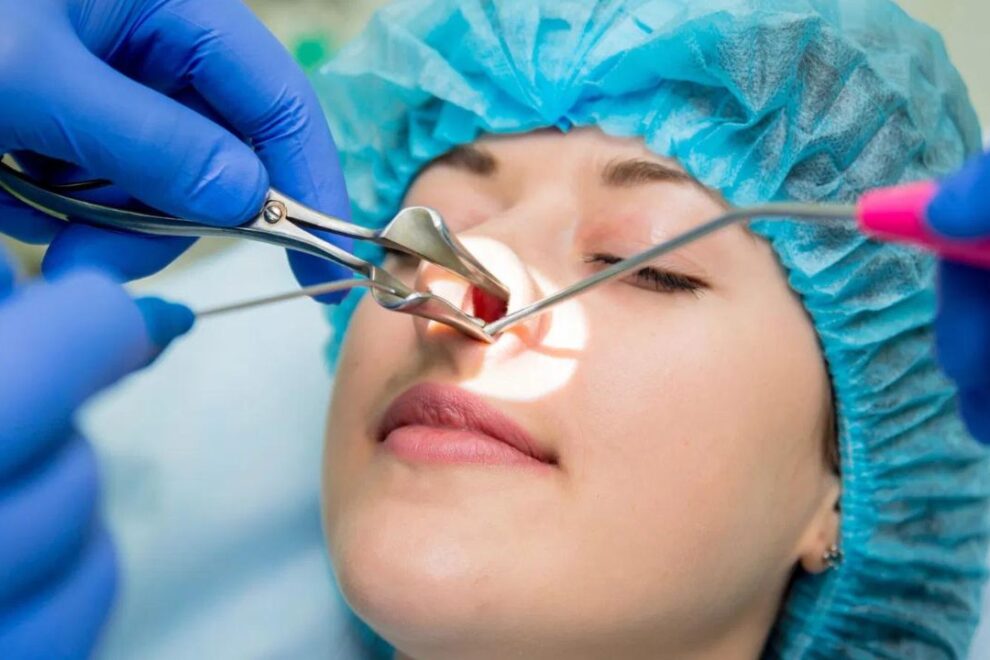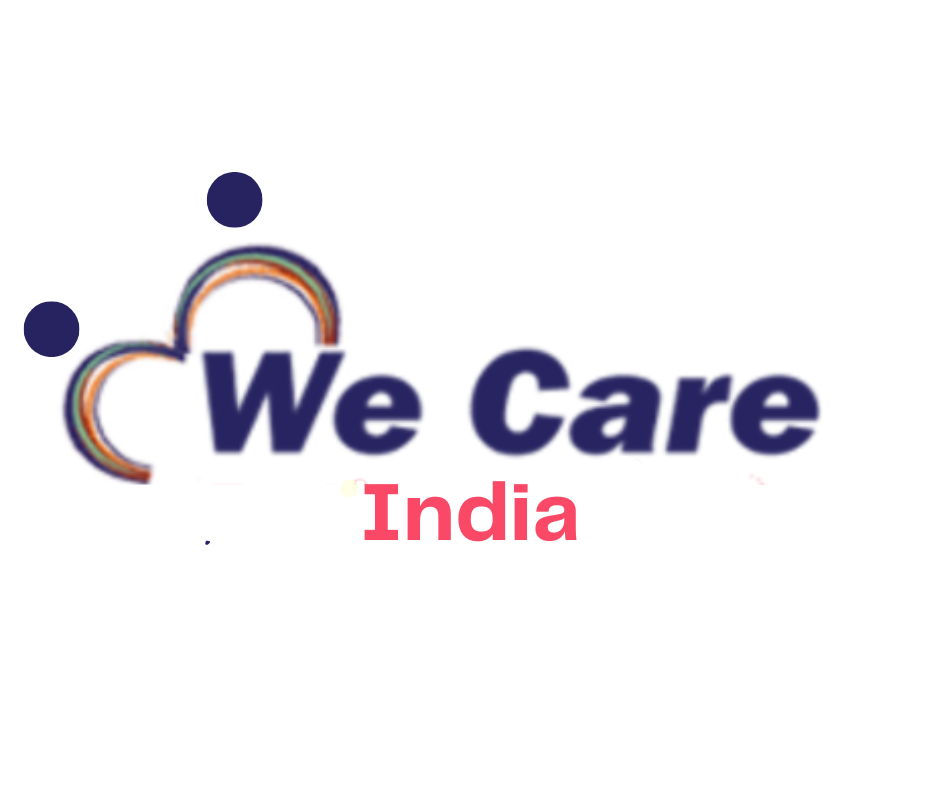Nasal Polyp Removal Treatment and cost in India – Expert Care for Sinus Health
Nasal Polyp Removal In India, most cases are found. For the surgery, they used highly advanced technologies for the treatment. There are teams of specialists who handle all cases of surgery. More than half of the Surgery cases in India are at a successful rate. In India, there are different cities and states, so every hospital and clinic facility is also different. Every individual wants to get treatment from the best hospitals and clinics, so they provide a management facility. So, We consider the best clinic for Nasal Polyp Removal in India as “We Care India”. They provide a better facility of management with a high success rate. There is a team of highly experienced specialists.


Free Doctor Opinion

Personalized care with a warm interaction with the patient
- Achieving outstanding success rates through our dedicated care approach.
- Equipped with the latest technology to ensure optimal treatment outcomes.
- Our expert team provides exceptional healthcare with experience.
- Offering 24/7 assistance for your health needs and concerns.
- Providing quality treatment at reasonable costs for every patient.
- Contact us Email ID:[email protected]
- Call us: +91 9029304141
Explanation About the Nasal Polyp Removal In India
Nasal Polyp Removal in India, is a non-cancerous disease, it grows inside the nose or the hollow areas inside the bones of the face. If there is a larger growth of the nasal polyps, it can block the nose. It causes difficult breathing problems, and you are not being to smell and infections. It is mainly found in young and middle-aged adults. It can easily affect anyone. It is caused when there is long-term inflammation and swelling in the nose. It can be due to allergies, asthma, Infection, Chronic rhinosinusitis (CRS), etc. When the nasal polyp starts it gives symptoms to you. The symptoms are runny nose, stuffed up nose, sneezing problems, feeling like your nose is blocked, loss of smell and taste, and headache. These symptoms that you faced.
So, if you face these symptoms, you have to be aware of them. Nasal Polyps affect up to 40% of the general population, anyone easily get them. It is assigned male at birth and many individuals get them in their 30-40 years. But when the age is increased the risks also increase. Another name for Nasal Polyps is Nasal Polyposis. It can be treated with medication or surgery. Most of the individuals who are taking the treatment medicines are Nasal Corticosteroid spray, Oral Corticosteroids, Antihistamines, and Decongestants. However, the nasal polyps can continue to grow and block your nose. It required surgery for this problem.
What are the Main Types of Nasal Polyps?
There are two Main types of Nasal Polyps used in Nasal Polyp Removal In India. The two types are Ethmoidal polyps and antrochoanal polyps, but surgeons use ethmoidal treatment, which is the most common type of treatment. Some individuals know about it. Now, let’s know about it in detail.
Ethmoidal polyps
Ethmoidal polyps is the most common type, it starts from the ethmoid sinuses between the nose and eyes. It is caused by allergic, rhinitis, chronic sinusitis, and cystic fibrosis. In this surgeons put a small tube with a lighted lens or tiny camera. It goes through the nostrils into the sinuses. They used tiny tools to remove polyps.
Antrochoanal Polyps
Antrochoanal Polyps are less common types. It is because they arise from the maxillary sinuses above the teeth and below the cheeks and nose. It is diagnosed with image studies such as the CT scan and the MRI for the differential diagnosis. It is mainly found in children and adults.
Process: Nasal Polyp Removal
Now, here you know the process of the Nasal Polyp Removal in India. In this, surgeons used an endoscope, a small tube with a camera, and magnifying glass, etc. There is a highly experienced team of specialists who undertake treatments. They have 10+ years of experience. So, now let’s know about the process of Nasal Polyp Removal.
Here are the Process of the Nasal Polyp Removal Surgery in India are following:-
- The surgeon is performed under general anesthesia, it will be completely asleep and won’t feel any pain. The body gets relaxed and you feel comfortable.
- They do not make any cuts on the nose or face. Then, the surgeons wash out your sinuses to remove any infection.
- They remove small pieces of bone from the nose to open up the nasal passageway. And they also removed some polyp tissue.
- They used the corticosteroid nasal spray to help prevent recurrence.
So, these are the steps taken in the process of the Nasal Polyp Removal in India. It is an easy process and you can not get any pain, it is a painless treatment.
Symptoms and Causes of Nasal Polyp
When you are suffering from any disease, you get symptoms, but most individuals do not notice the symptoms. They take it lightly. So, in Nasal Polyp you face many symptoms that affect your health conditions. Now, let’s go into detail about it.
Symptoms of Nasal Polyp
A small polyps in your nose gives you small symptoms on your health. But when your age is getting increases, it also develops.
- You feel a stuffy nose and runny nose.
- You have lost your taste or smell and have a headache.
- There is a bleeding from the nose.
- You get sinus pressure and have snoring.
When a nasal polyp grows large enough it can block your nasal passages and sinuses. It gives you symptoms of Frequent Asthma attacks, sinus infections, and sleep disorders.
Causes of Nasal Polyps
Individuals do not know about the causes, or how the problems affect our health conditions. The causes of the nasal Polyps are unclear, but they are often associated with chronic inflammation of the nasal passages and sinuses. The causes you get in Nasal Polyps are due to allergies, asthma, chronic sinus infections, and when Immune system disorders.
What are the Complications of the Nasal Polyps?
In Nasal Polyps, you have to face so many complications in your health. It can lead to several complications which impact both nasal health and overall well-being. It gives you complications in Sinus infections, breathing difficulties, reduced sense of smell and taste, etc.
Now, let’s go into detail about it.
Now, here are the complications of the Nasal Polyps are following:-
Chronic Sinus Infections:- The nasal polyps can obstruct sinus drainage. It creates difficulty in treating the sinus infections. So they are left to be treated.
Breathing Difficulties: The large nasal polyps can block your nasal passages, and cause breathing problems. Individuals are not able to sleep properly, which causes difficulty. It serves obstruction that may lead to sleep apnea.
Reduced Sense of Smell and Taste:- In this, individuals lose their taste and smell, nasal polyps obstruct the nasal passages, and they can impair your sense of smell and taste.
Spread Infections:- The infections are associated with the nasal polyps. It can be spread to nearby structures, such as your eyes or brain. It causes serious complications such as brain and spine infections and pus in tissues and organs, so they are left to be treated.
Challenges in Nasal Polyps Treatment:- The Nasal Polyps may pose challenges in treatment. It required more aggressive management strategies or surgical intervention.
Cost of Nasal Polyp Removal In India
The Cost plays a vital role in any treatment, it takes the steps towards the treatment. Before any treatment, individuals’ minds thought about the Cost. The Cost of Nasal Polyp Removal depends on several factors such as location, types of Nasal polyp surgery treatments, hospitals, and clinics, specialists’ experience, techniques, etc. The cost of Nasal Polyps is affordable and reasonable, everyone can easily afford it. It creates difficulties for the low-income person, but they can also afford it. So, the cost of Nasal Polyps removal in India is INR 45,000 to 70,000. The cost also depends on the type of Nasal Polyps removal surgery. Different types have different amounts. The cost can vary depending on the hospital, the patient’s health, and the type of procedure required.
The Cost of Different Types of Nasal Polyps Treatment In India
Place of Treatment | Average Cost | Minimum Cost | Maximum Cost |
Bangalore | INR 57,500 | INR 45,000 | INR 70,000 |
Chennai | INR 57,500 | INR 45,000 | INR 70,000 |
Hyderabad | INR 57,500 | INR 45,000 | INR 70,000 |
Delhi | INR 57,500 | INR 45,000 | INR 70,000 |
The success rate of Nasal Polyp Removal in India “We Care India’.
We Care India is the best clinic for Nasal Polyp Removal In India. There is a highly qualified team of specialists and experienced. They have experience of 10+ years. We Care India has a high success rate in Neck pain surgery is above 85%. There is a medical team who will take care of you and provide better management facilities. In India, there are lots of hospitals and clinics, that provide facilities but in some hospitals and clinics, the success rate is low. Individuals are searching for the best clinics, providing the best management facilities with a high success rate. But “We Care India” in Nasal Polyp Removal Surgery is the best clinic with a high success rate.
Why choose We Care India for Nasal Polyp Removal In India?
We Care India is the best medical service provider in India, and we take care of the patients and the healthcare provider team. We have a medical team that works 24*7 to handle the medical cases. So feel free to contact us anytime as our friendly medical staff will help you with your medical enquiry. Pour highly qualified doctors work 6 days a week to diagnose your disease and assist you with one of the best treatments.
Moreover, our opening hours vary on different days. From Monday to Friday are different, Saturday timing is different and Sunday timing is different. Our trusted medical team offers personalized care. With the help of exceptional service, we ensure successful treatment. Our medical service provider center is considered the top healthcare company that offers the best medications, treatment, surgical processes, etc.
This center comes with several treatments or surgeries such as cosmetic surgery, brain and spine, and cancer treatment. So this medical center is to make your future bright like a moon. With 25 years of experience in the medical sector, we offer top-notch quality performance to patients struggling with any type of disease. Our center has a specialty in Nasal Polyp Removal In India. We offer smooth nasal Polyp Removal In India.
Last Word
In this content, you have learned about Nasal Polyps Removal In India, several individuals are involved in this disease. Small nasal polyps do not have a high impact on your health, but large nasal polyps have a bad impact on your health, which causes difficulty in breathing, and asthma attacks. In this, you learned about the types, processes, symptoms causes, and complications.
After reading the content of Nasal Polyps Removal In India, you have more information and knowledge about the Nasal Polyps. You know the most important factor is cost. The cost of Nasal polyps is affordable and reasonable. Everyone can easily afford it.
Read Also :-
- Neurosurgery Treatments in India – Advanced Care for Brain and Spine
- Fertility Treatment in India – Advanced IVF, IUI, and Surrogacy Solutions
- High-Intensity Focused Ultrasound (HIFU) in India – Non-Surgical Lifting Treatment
- Neonatal Surgery in India – Expert Care for Newborns
- Electrolyte Disorders Treatment in India: Expert Care for Balanced Health
- Nephrolithotomy for Kidney Stone Removal in India – Expert Surgical Care
Committed To Build Positive, Safe, Patient Focused Care.
High Quality
Care
Home Review
Medicine
All Advanced
Equipment
Book An Appointment

At We Care India, we offer complete medical services for your entire family, from routine check-ups to injury care, ensuring personalized attention and expert assistance for all your health needs.


